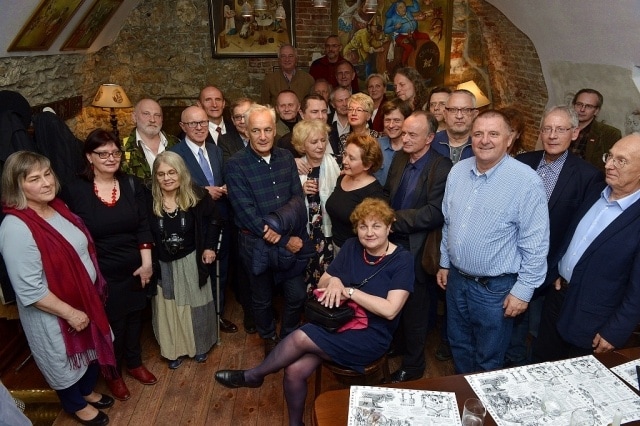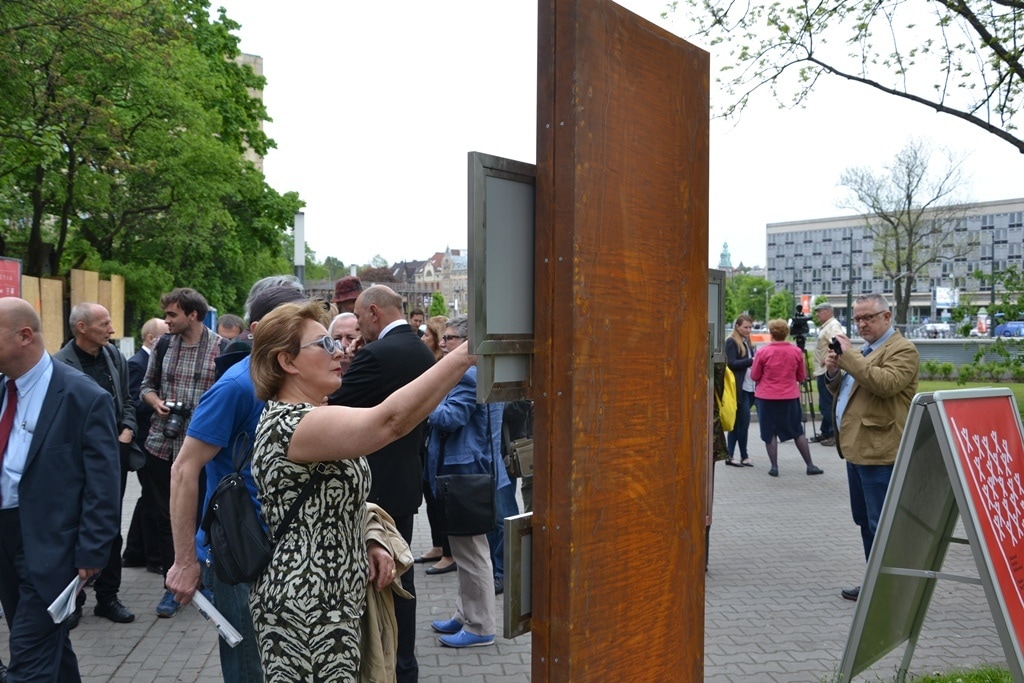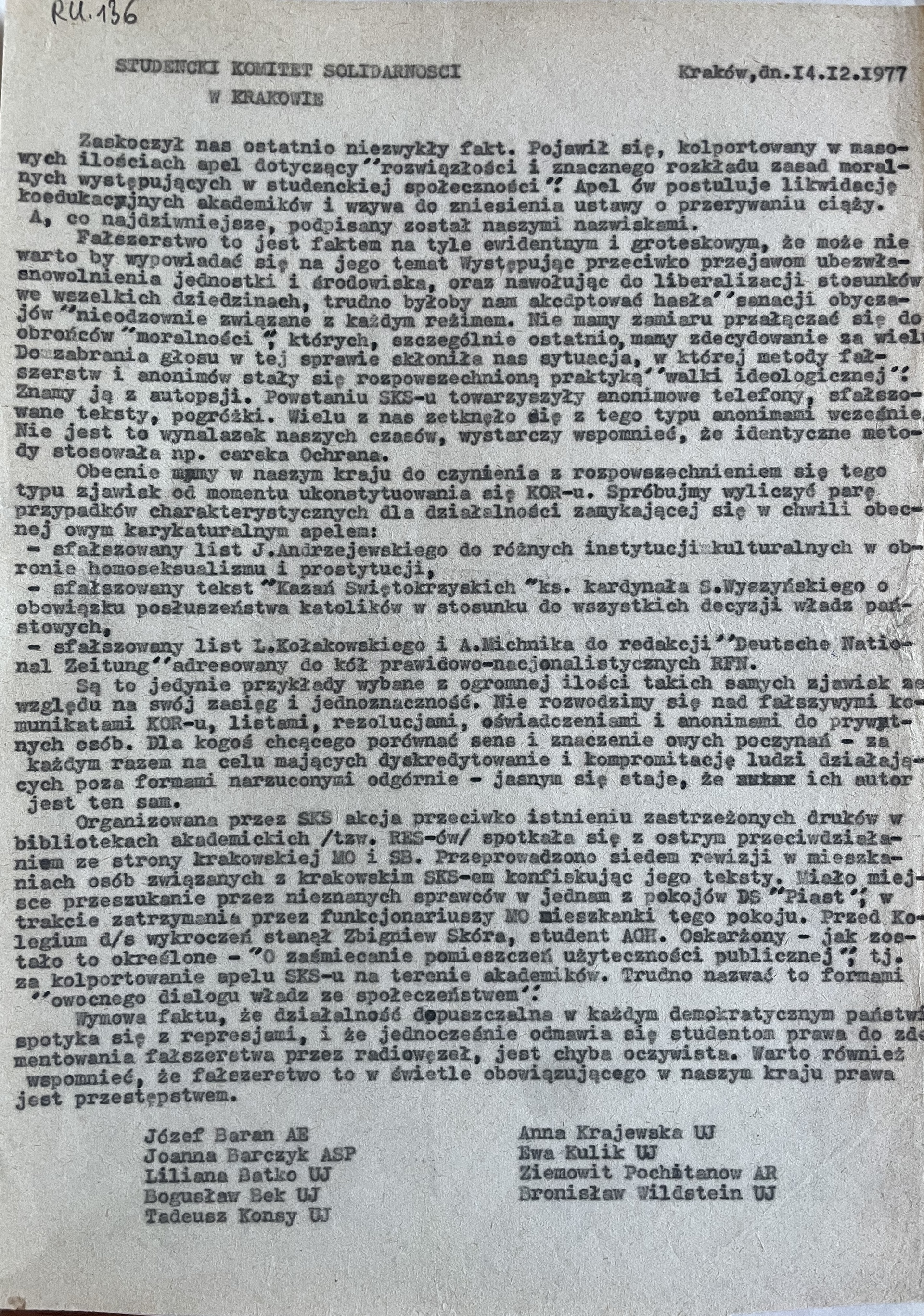Creating “Solidarity”
During these events, Liliana Batko’s flat turned into a centre of operations for opposition activities and the handling of mourning arrangements. That is where the Student Committee of Solidarity was established. Batko was its co-founder and ombudsman. On many occasions, she would emphasize the following in interviews: “For me, it’s really significant that back then, many years ago, it was we who used the word ‘solidarity’ for the first time. After all, it was a word that cardinal Wojtyła would frequently use in his social writings back in his Lublin days. It was a word that seems obvious now. It can be heard everywhere in the world in various social or political discourses. But back then, it was something entirely new.”[1]
Batko would also highlight the significance that coming out of the shadows and clearly declaring the establishment of an organisation with oppositional aims had for the student opposition: “For the majority of us it was clear that openness was the best form of protection. (…) We wanted to underscore our distinctiveness, academic character, and independence.”[2]
Batko’s activity with the Student Committee of Solidarity mainly involved maintaining contact with curia and university professors. She sought permission to access books banned at the Jagiellonian Library, as well as to have restrictions on access to passports waived. Beginning in 1978 she was also involved in the activities of the underground university, namely, the Scientific Courses Association, where she helped arrange lectures and seminars. In the same year, following a lecture by Adam Michnik, Batko was detained and brutally assaulted by the Citizens’ Militia.
[1] Ibid.
[2] https://przystanekhistoria.pl/pa2/teksty/81241,Studencka-solidarnosc-odpowiedzia-na-zamordowanie-Stanislawa-Pyjasa.html

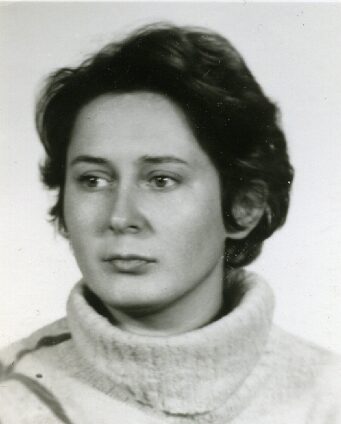
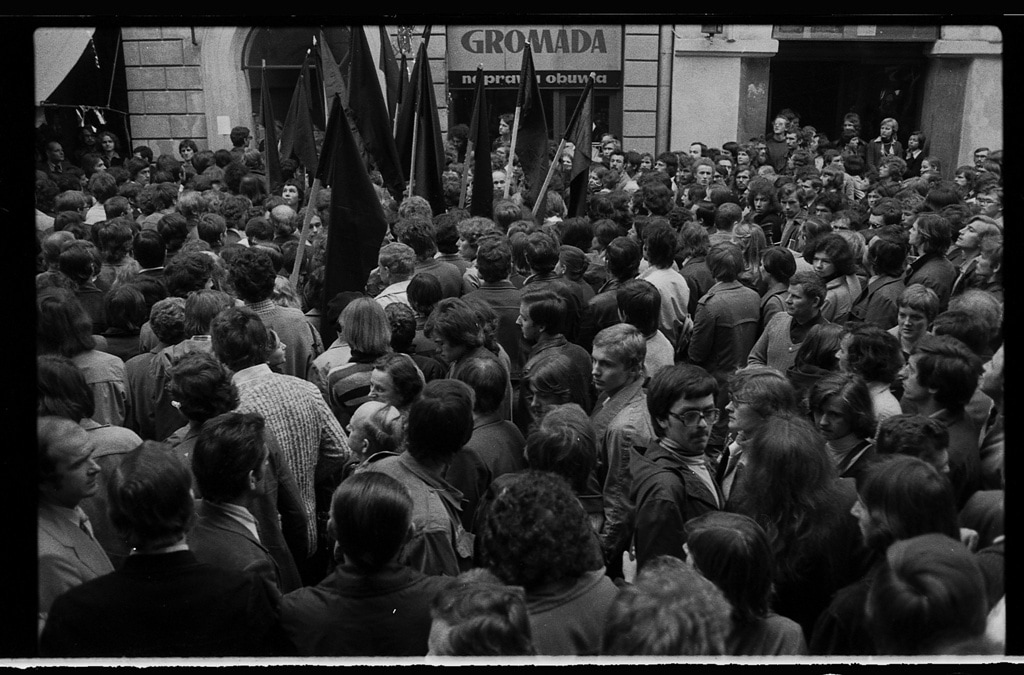
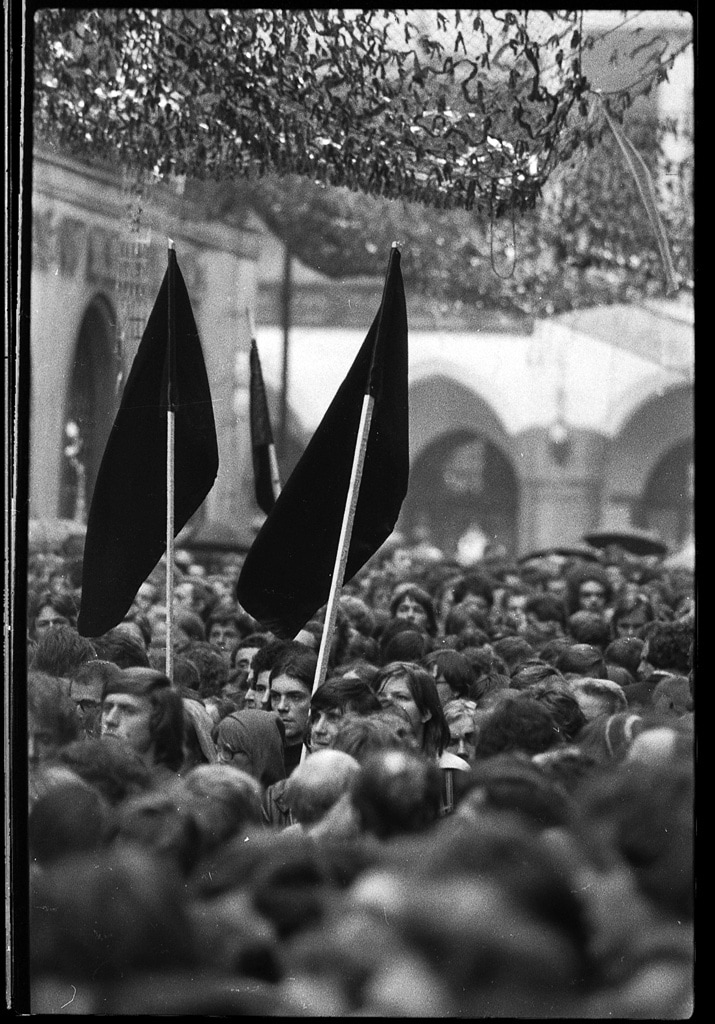
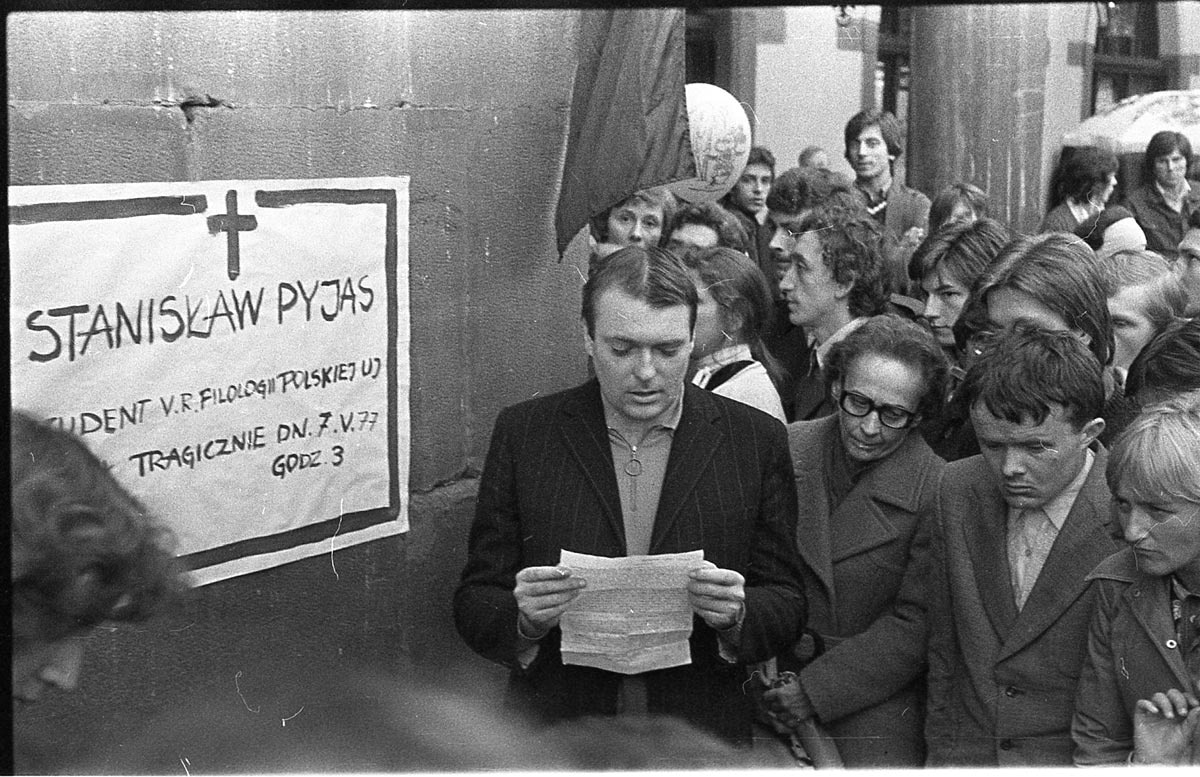
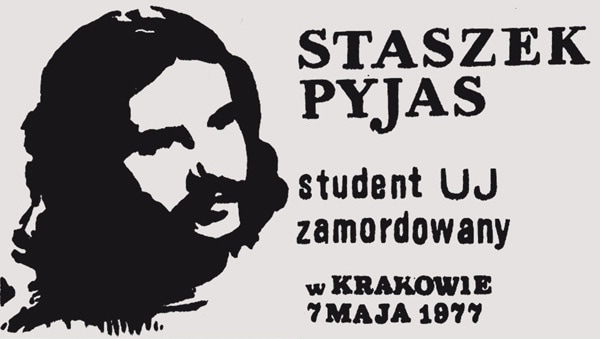
![Student Committee of Solidarity, 1977 [SKS voice on censorship].](https://aski.gr/wire/wp-content/uploads/2024/02/VDA_Lilianna-Batko-Sonik_08.jpg)

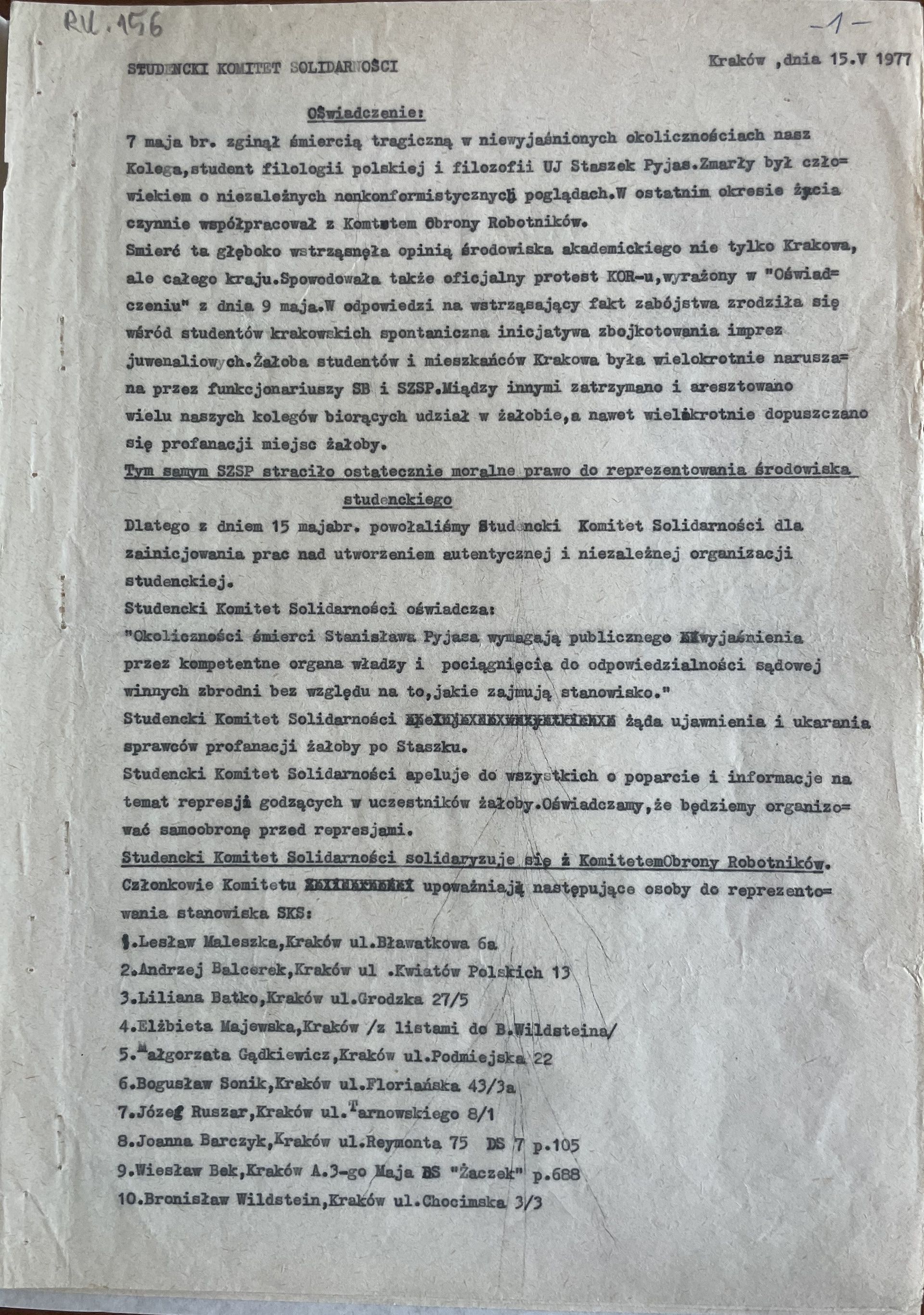
![Society for Scientific Courses [Appeal to workers in science and culture].](https://aski.gr/wire/wp-content/uploads/2024/02/VDA_Lilianna-Batko-Sonik_12.jpg)
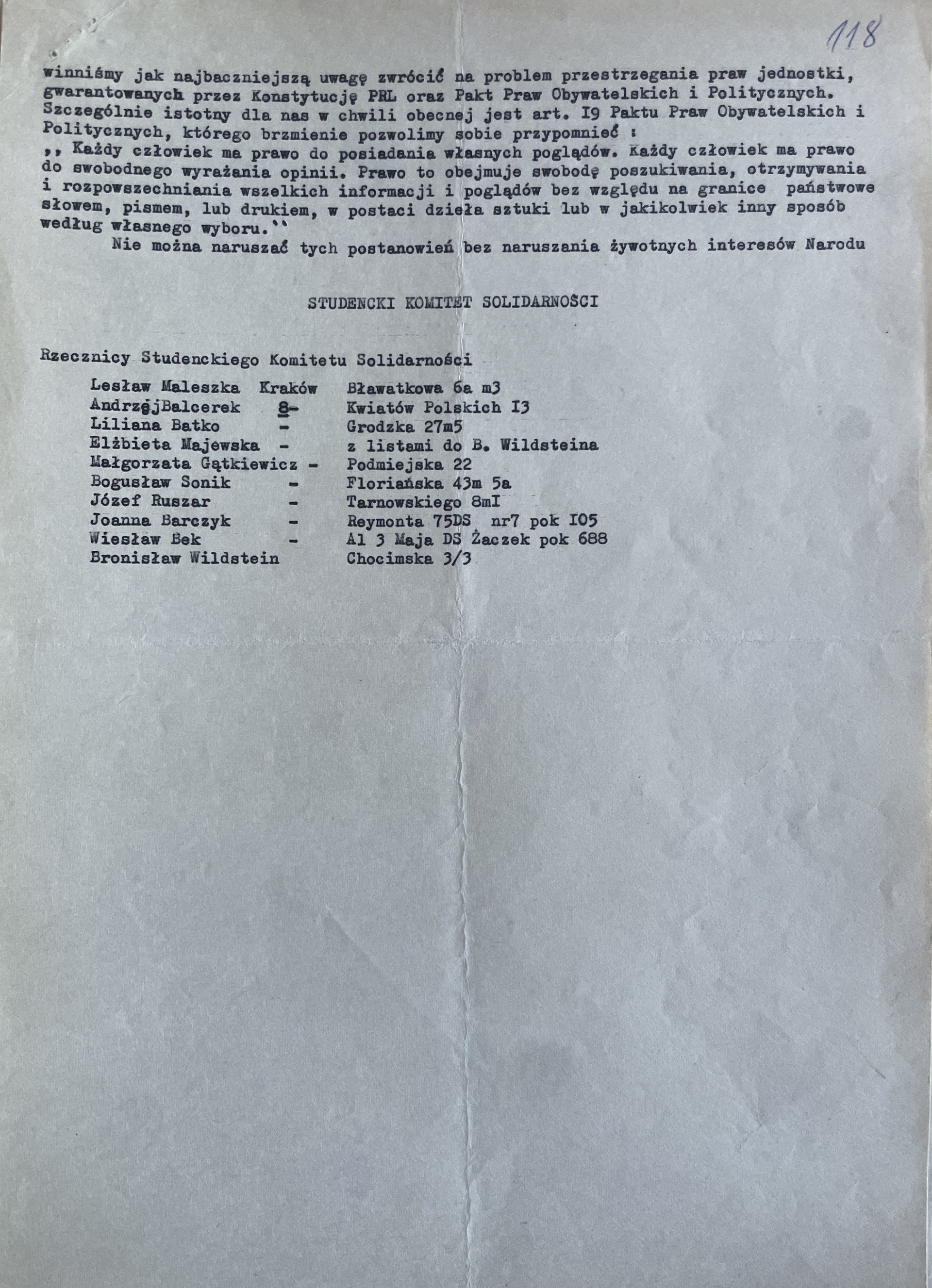
![Student Committee of Solidarity, [Appeal : Krakow, 21.11.1977] - Fundacja Centrum Dokumentacji Czynu Niepodległościowego z siedzibą w Bibliotece Jagiellońskiej, Kraków, CDCN, M 3216 III](https://aski.gr/wire/wp-content/uploads/2024/02/VDA_Lilianna-Batko-Sonik_13.jpg)
